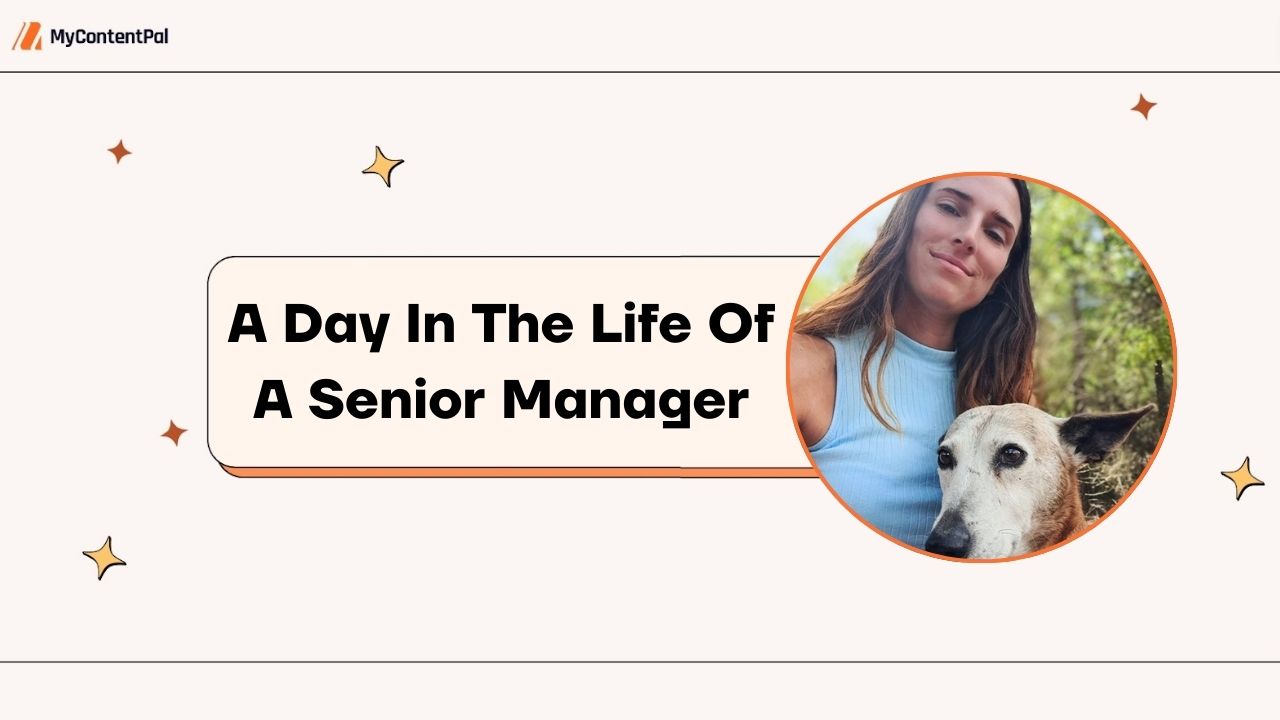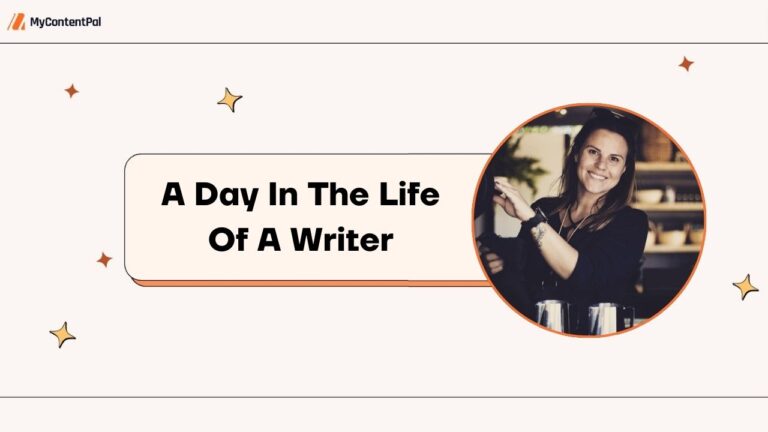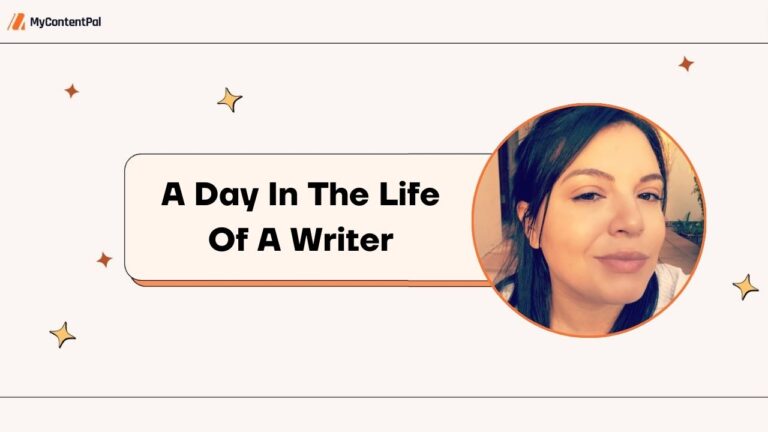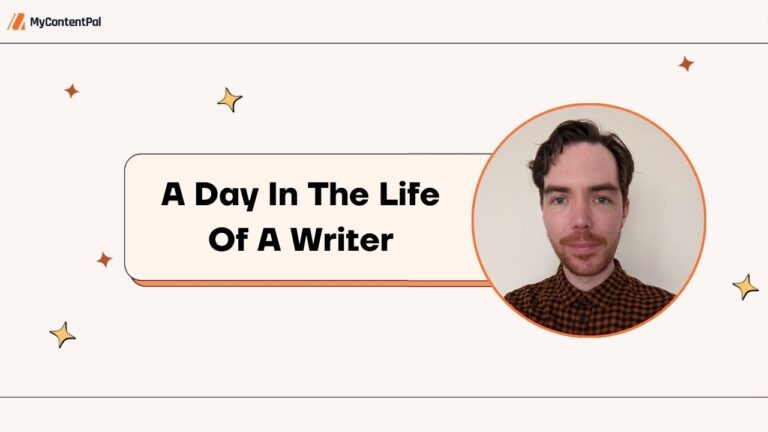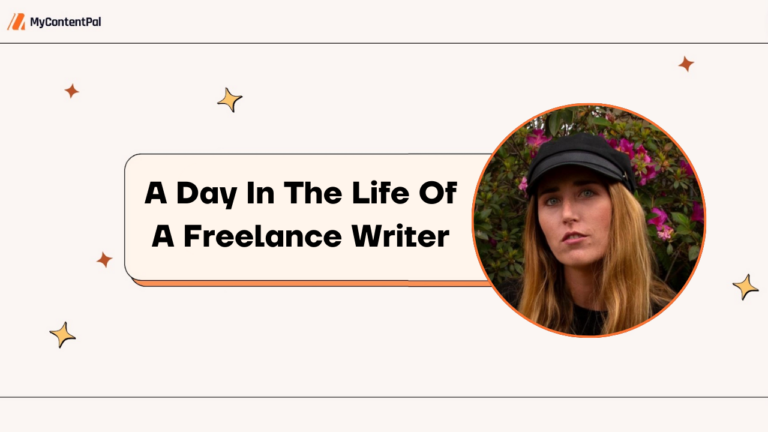Meet Adri, a senior manager and Head of Proofreading. As we’re getting ready to hire for a new management position at My Content Pal, we thought we’d get her opinion on what it is like to work at our agency.
Please introduce yourself and describe your role at My Content Pal.
Hi there!
My name is Adri, and I work as Head of Proofreading, which is a management role.
No two days look the same, but in general, I am responsible for:
- Assigning and managing proofing and the proofing team.
- Proofing and editing as a final check before content is submitted to clients.
- Occasionally writing content, especially for new clients.
- Assisting with managing the writing team.
- Drafting guidelines and process documents.
- Helping out with recruitment.
- Communicating with clients.
How did you get started in the content industry and how did you get a management position?
To be completely honest, I accidentally fell into the content industry! I used to have an 8 – 5 office job, but after spontaneously quitting and moving to a new town, I needed work. As I had a passion for writing, it seemed like a natural fit.
And then My Content Pal found me.
I started off as a writer, but thanks to the growth and career opportunities in the company, I was able to progress to proofreader, senior writer, and then manager.
Before taking on the management role, Craig ensured I was ready for it by offering me training, books on management, and mentorship.
What does a typical day look like for you?
Like I said, no two days are the same! And when you think you know how a day will pan out, you’re probably wrong. But that’s why it is super helpful to block off time when you can focus solely on a single project or task with no distractions.
That said, here’s how I try to structure my day, usually:
- I start at 7 am (this is a personal choice!) and first see which content has been submitted as our writers have flexible working hours and some freelancers submit late at night.
If needed, I update our Mastersheet with the latest submissions (if not already done by a night owl team member). - I assign the completed content to our team of proofreaders so they know what they have to get done for the day. In some instances, I will also assign myself some content to proof, especially if it is a new client or a challenging topic.
- After checking my emails and the Admin inbox, my day really starts.
- I do the “deep thinking” work in the mornings, whether that is content writing, process docs, working on lead magnets or any other tougher tasks.
- My Content Pal emphasises a work-life balance, so I diligently take my lunch break each day.
- After lunch, I do less intense (from a mental perspective) work, like doing final proofing checks on articles, assigning more proofing, liaising with clients, recruitment, or social media posts.
How do you prioritise your tasks and manage your time each day?
I’ve touched on this a little bit in the previous question.
It comes down to knowing when I have the most bandwidth to tackle more intense, critical-thinking tasks. For me, that’s in the morning.
It also takes discipline, as there are plenty of distractions, like emails or messages from the team that break my focus.
So, usually, in the mornings I turn off my notifications and get to work. That way, afternoons are (mostly) more relaxed and free to do the less intense tasks.
Admittedly, this might not work for everyone, so you really have to find a schedule and rhythm that works for you!
How do you interact with the team on a daily basis? What methods do you use to ensure effective communication and collaboration?
Most of our interactions occur on Slack, as we are entirely remote. Sometimes a Google Meet is called to chat with the team.
We use the following communication methods:
- Emails: to assign daily content, send edits to the writer, answer any questions about the content briefs, and meeting invites.
- Slack: To communicate with the wider team, share project-specific information, or have non-work chats.
- Google Meet: Weekly huddles, workshops, team building.
I mostly use Slack to communicate with my proofing team, Craig and the other managers. It is a fast and efficient way to quickly grab someone’s attention.
To ensure effective collaboration, we have several project-based Slack channels where team members can work together and share ideas.
We also make use of Basecamp (it’s still relatively new for us) to collaborate, communicate and assign tasks.
What are some common challenges you face, and what do you do to overcome them?
The biggest challenge to overcome is to be selfish with my time. As a manager, I feel responsible for everyone else, and as such I give them my time when they need it.
Although I believe this is a good thing, it often ends up with me getting distracted from the task at hand for an hour or longer, as once you respond to one question, you respond to many.
I have become stricter with blocking out portions of my day where I am entirely focused on my task or project… everything else can wait.
What resources have been particularly beneficial to your growth at the company?
When I first stepped into my role as manager, I was given two books to read:
- Wooden on Leadership (John Wooden)
- The five dysfunctions of a team (Patrick Lencioni)
These two books taught me so much about how to deal with people, the role of a manager, different management styles, and dealing with various scenarios. Without this initial kickstart, I might have been floundering.
I have also been lucky enough to enjoy Craig’s mentorship, as well as learn from the other managers. I believe we’re never done learning, and just because someone does something differently doesn’t mean they’re wrong.
What aspects of your job do you enjoy the most?
The team! It sounds so cliche, but I really do enjoy the people I get to work with every day. They all have such different personalities, and you get to know them through their writing, which is rather special.
Of course, I also love that I get to work remotely and have a level of flexibility in my day.
What advice would you give someone who wants to become a senior manager in the content industry?
Don’t come in with preconceived ideas of what it would be like.
If you were a manager before in a different industry, your expertise is of course welcome! And if you’ve never been a manager before, don’t be scared. You have an entire team behind you to assist and support you, even on the days when you feel overwhelmed.
You should also have some basic understanding of SEO – that’s crucial in this industry.
What skills or traits do you think are essential for success in this role?
- Time management
- Writing and editing
- Basic SEO knowledge
- Communication skills (with clients and the team)
- Flexibility and adaptability
- Self-discipline
- A positive attitude
How do you see the role of a senior manager or senior member of staff changing in the future at My Content Pal?
There are a lot of positive changes happening at My Content Pal, and I believe that the company has an interesting future ahead of it. Anyone lucky enough to join in the future or be there to witness it will be a part of something great.
With the aim to provide brands against the shifting tides of industry and algorithm changes, a senior member of staff will be involved in creating strategies that ensure growth and stability for our clients. You won’t just be responsible for managing people, you will be actively driving the company forward and bringing your own ideas to the table.
